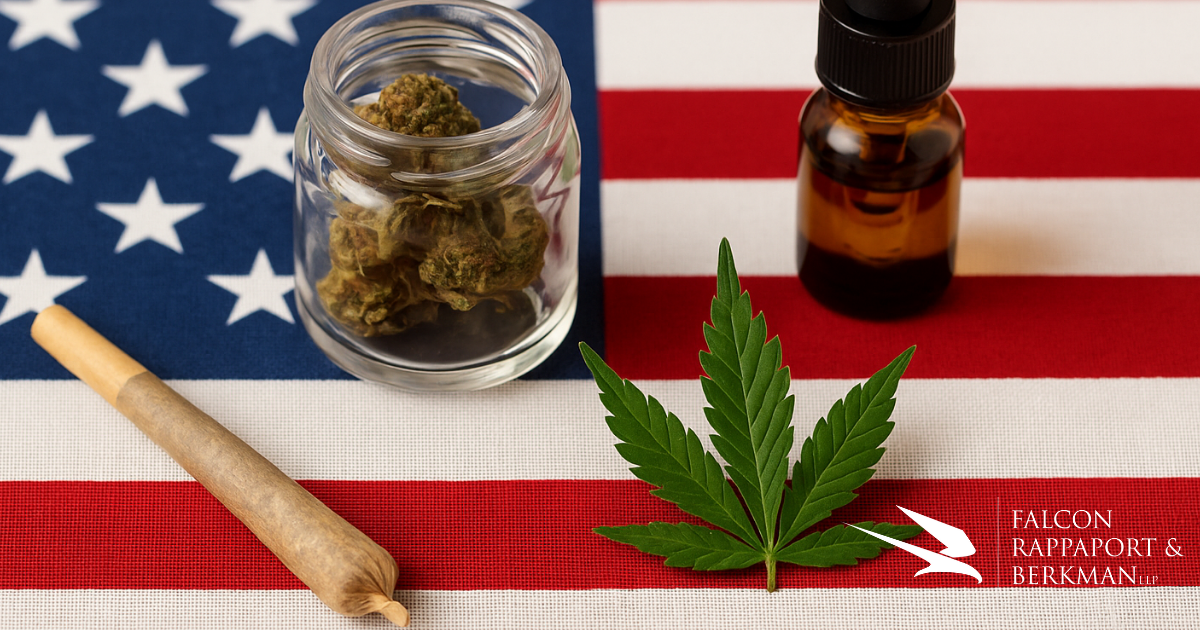Will Trump Reschedule Cannabis?
By: Andrew P. Cooper, Esq., LL.M. and Terran Cooper
Recent public statements by President Trump have reignited discussion about the possibility of federal cannabis rescheduling. During an August 11th press exchange at the White House, the President confirmed that his administration is “looking at” the prior administration’s proposal to move cannabis from Schedule I to Schedule III under the Controlled Substances Act (CSA). While characterizing the issue as still “early,” President Trump indicated that a determination could be announced “over the next few weeks,” while acknowledging the breadth of opinions surrounding cannabis policy.
Although some media coverage framed the remarks as signaling imminent reform, the President’s comments stopped short of a definitive commitment. He observed that “some people like it, some people hate it,” and noted concerns about potential adverse effects on minors and other populations. The President’s mixed appraisal echoed earlier statements he made during the 2024 campaign, when he expressed support for expanding medical cannabis access but also emphasized the complexity of broader cannabis regulation.
The decision-making authority for rescheduling ultimately rests with the Drug Enforcement Administration (DEA), acting on a scientific and medical evaluation from the U.S. Department of Health and Human Services (HHS). The DEA’s new Administrator, Terrance Cole, was confirmed last month. During his April confirmation hearing, Administrator Cole testified that advancing the rescheduling review would be among his initial priorities; however, rescheduling did not appear on the formal list of agency priorities released following his confirmation. Administrator Cole retains the power to resolve pending administrative appeals and reinstate the hearing process required for a final scheduling determination.
Should the DEA elect to place cannabis in Schedule III, the move would materially ease certain federal restrictions. Schedule III status would acknowledge accepted medical use and a lower potential for abuse relative to Schedules I and II, allow physicians to prescribe FDA-approved cannabis-derived medications without the current Schedule I barriers, and enable cannabis businesses to claim ordinary federal tax deductions that are presently disallowed under Internal Revenue Code § 280E. Nevertheless, Schedule III substances remain subject to significant federal regulation, including registration, record-keeping, and potential criminal liability for unlicensed distribution.
At present, the key variables influencing the trajectory of rescheduling include (i) the timing of HHS’s final scientific and medical recommendations, (ii) the approach the DEA takes under Administrator Cole’s leadership, and (iii) the degree of political will within the White House to prioritize the issue. Until those factors converge, industry stakeholders should continue to monitor administrative developments and prepare for multiple regulatory outcomes.
If you have questions about what federal cannabis rescheduling might mean for your business, contact FRB’s Cannabis & Psychedelics Practice Group at 212-203-3255 or fill out the form below.
DISCLAIMER: This summary is not legal advice and does not create any attorney-client relationship. This summary does not provide a definitive legal opinion for any factual situation. Before the firm can provide legal advice or opinion to any person or entity, the specific facts at issue must be reviewed by the firm. Before an attorney-client relationship is formed, the firm must have a signed engagement letter with a client setting forth the Firm’s scope and terms of representation. The information contained herein is based upon the law at the time of publication.

